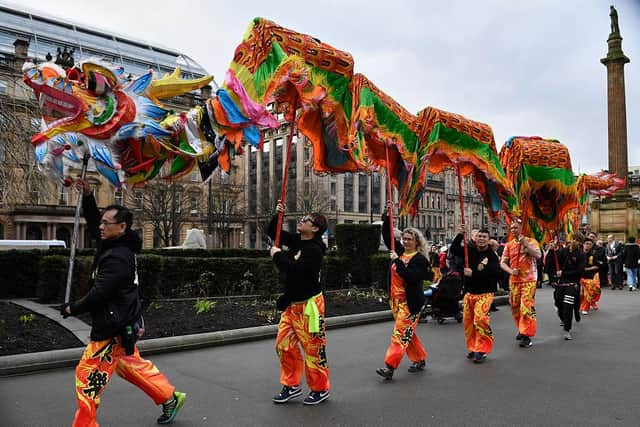Remember this New Year, protecting animals will protect us all - Philip Lymbery


Accommodation on that cold, drizzly night was an old lighthouse with no WIFI or TV. Furnishings inside fitted the remote historic look, resembling something out of a 1900s period play. Come the evening, pin-striped gangsters, long-legged bunny girls and white-faced silent movie stars were packed into a nearby bar much vaunted for being the best for miles since 1868. In truth, it was the only pub on the tiny island of Lundy in the Bristol Channel. And it provided one of my most memorable evenings seeing in the year ahead.
What struck me most about that evening was the feeling of togetherness; the warmth of being with friends, family and convivial strangers, all enjoying the moment as one. Of not being alone, instead facing the future with optimism and joy. Little did we know that the ‘Roaring Twenties’ 21st Century-style would soon be hit by a pandemic. And one that looks set to drag on into a third year, keeping us apart, or at least socially distanced, and leading to the cancellation of Edinburgh’s Hogmanay celebration.
Advertisement
Hide AdAdvertisement
Hide AdNew Year is one of the most celebrated holidays in the world, creating one of those moments when people are united by their intent to party. For the majority of us, New Year is about looking forward, embracing positivity. It’s about hope for the future, something that has renewed importance given the current pandemic, and the climate emergency highlighted recently by a meeting of world leaders in Glasgow.
What I find rather wonderful is that whilst we all unite to say goodbye to the old and welcome in the new, we do so in different ways, and even at different times of year.
Parts of Shetland, such as Foula and Unst, celebrate ‘old’ New Year using a 2,000-year-old calendar. So New Year there won't ring in until January 12th (or 13th). The calendar in use there was invented by Roman emperor Julius Caesar around 45 BC and was the standard for centuries worldwide. I am rather impressed that some on the islands stuck doggedly to Caesar’s version whilst the rest of the world replaced it with the Gregorian Calendar in 1582.
Likewise, the colourful Chinese New Year, also called Lunar New Year, begins with the new moon that occurs sometime between January 21 and February 20 according to Western calendars. In running an international charity, I look forward to joining Chinese colleagues and communities, to celebrate the Year of the Tiger in 2022.
Whilst some aspects of New Year are commonplace, like our hopes for a better future, rituals like the midnight countdown, the kissing of a significant other when the clock strikes, glasses of fizz and fireworks, there are also many wonderful variations in the way we celebrate.
In Spain for example, a popular tradition is eating 12 grapes at midnight – one for each time the clock chimes. Otherwise, the new year’s superstition suggests they’ll miss out on extra good luck for the coming year.
In Denmark, a sign of friendship involves saving old dishes in order to break them on each other’s front doors. Residents allow broken dishes to pile up in order to show who has the most friends – to me, it beats 'likes' on social media!
Puerto Rico has a practice of throwing buckets of water out the window to do away with evil spirits.
Advertisement
Hide AdAdvertisement
Hide AdAnd in Ireland, placing holly, ivy or mistletoe under your pillow before sleep on New Year’s-eve is said to bring luck in love.
Yet for revelry and passion for celebration, few can beat the Scots. It is believed that many of the traditional Hogmanay celebrations were originally brought to Scotland by the invading Vikings in the early 8th and 9th centuries. These Norsemen paid particular attention to the arrival of the Winter Solstice or the shortest day, and fully intended to celebrate its passing with some serious partying.
Making resolutions, perhaps the most popular of New Year’s traditions, provides a moment for pause and reflection. My own New Year resolution is to continue to speak up for the sentient animals who deserve our compassion and respect. To stand up for the welfare of all animals and our natural environment. After all, Covid is widely seen as having originated in animals and been transferred to people through contact at cruel live markets. A decade before, Swine flu swept the planet, its origins thought to be from the pig farms of America and Mexico. And with three-quarters of human diseases originating in animals, it all underlines the need for a ‘One Health’ approach to the future – recognising that the health of people relies on the wellbeing of animals and a thriving environment. In other words, protecting people means protecting animals too.
So, as we say farewell to the old, and welcome in the new, let’s come together to make this a new year to remember. To protect one another and other species and thereby bring about a happier, healthier, safer world.
Here’s to a very happy new year to you all; I raise a glass to the memories we will make together, wherever we are in the world, and however we like to celebrate.
Philip Lymbery, Global CEO of Compassion in World Farming International and UN Food Systems Champion. Follow Philip on Twitter at @philip_ciwf
In whatever form they take, our celebrations this year come against the backdrop of ongoing covid restrictions and a tough year. Another year to be thankful for the selfless people that make up our NHS and all the volunteers of the vaccination programme, which has required the most monumental of efforts to keep us as safe as possible.Celebration binds us together, whatever the culture or tradition, expressing hope for a better future: in love, life, and togetherness.
Comments
Want to join the conversation? Please or to comment on this article.